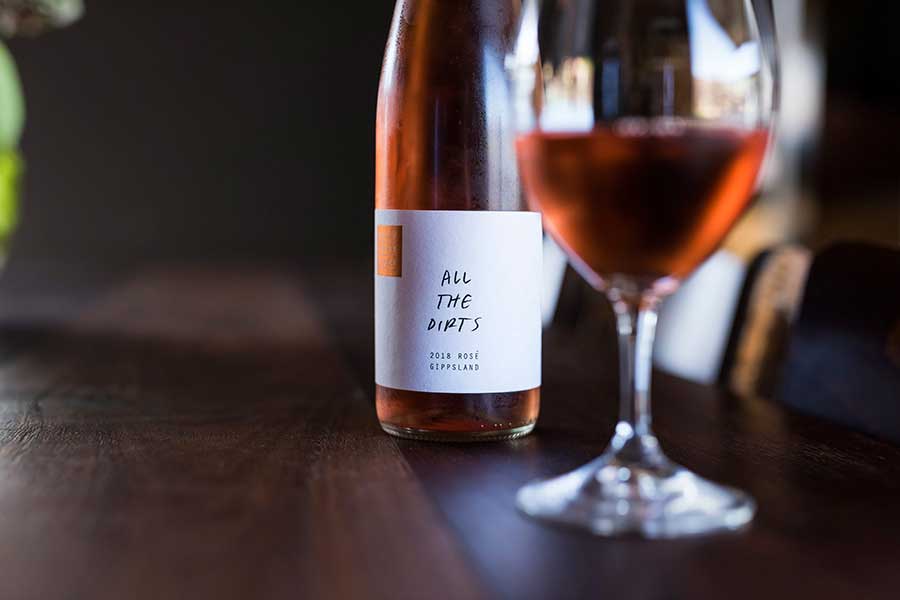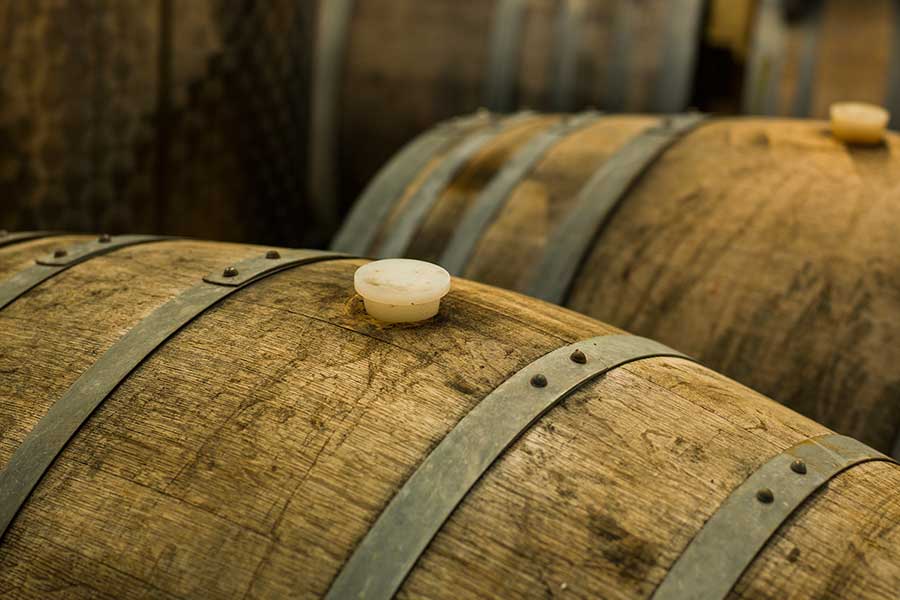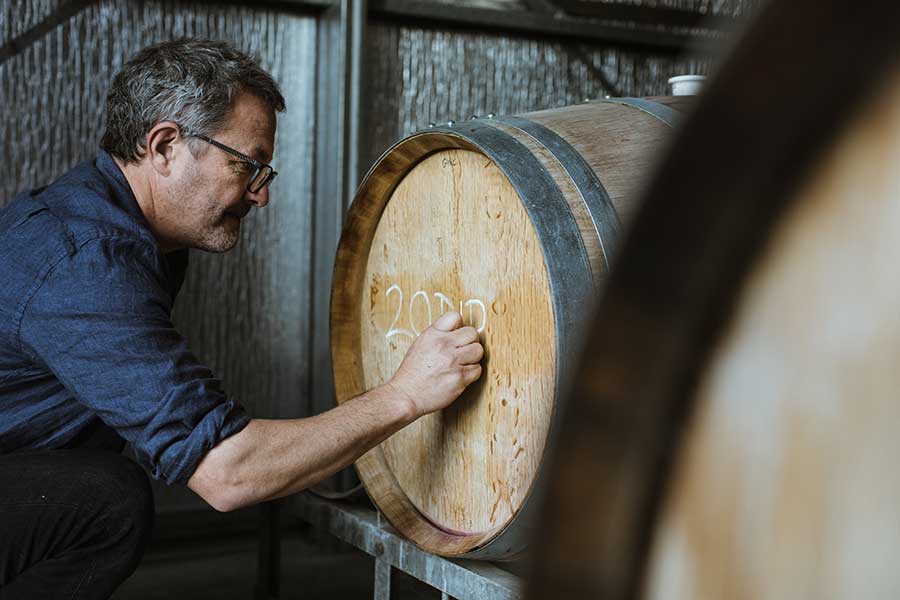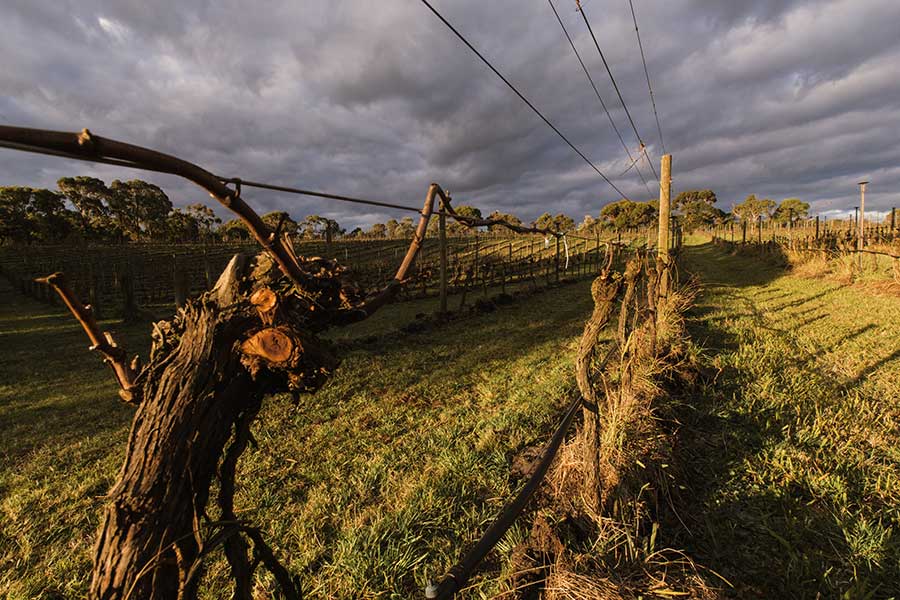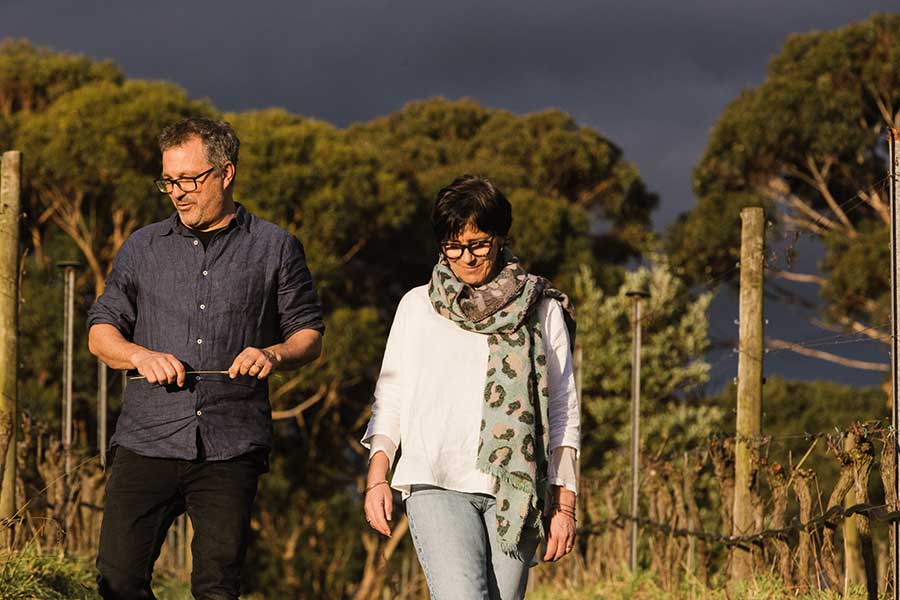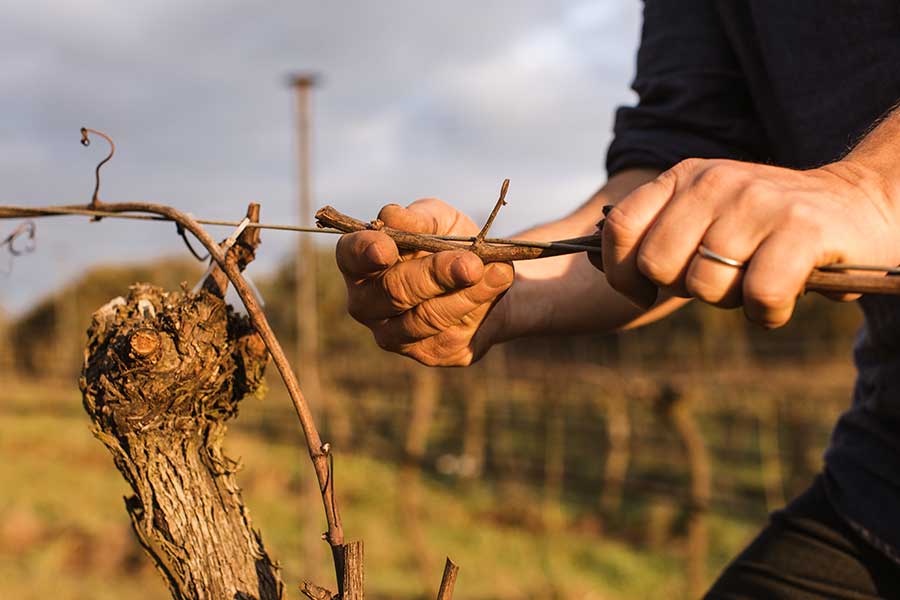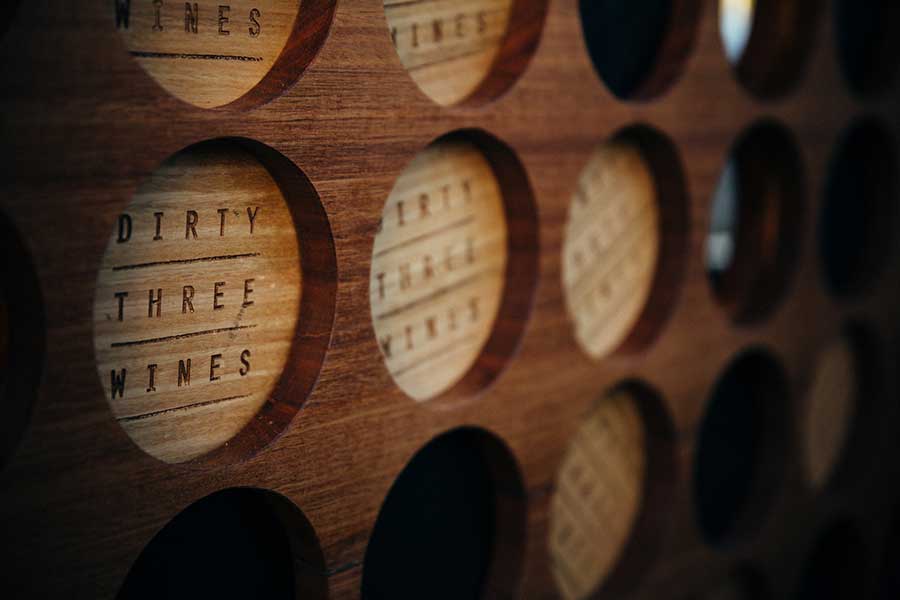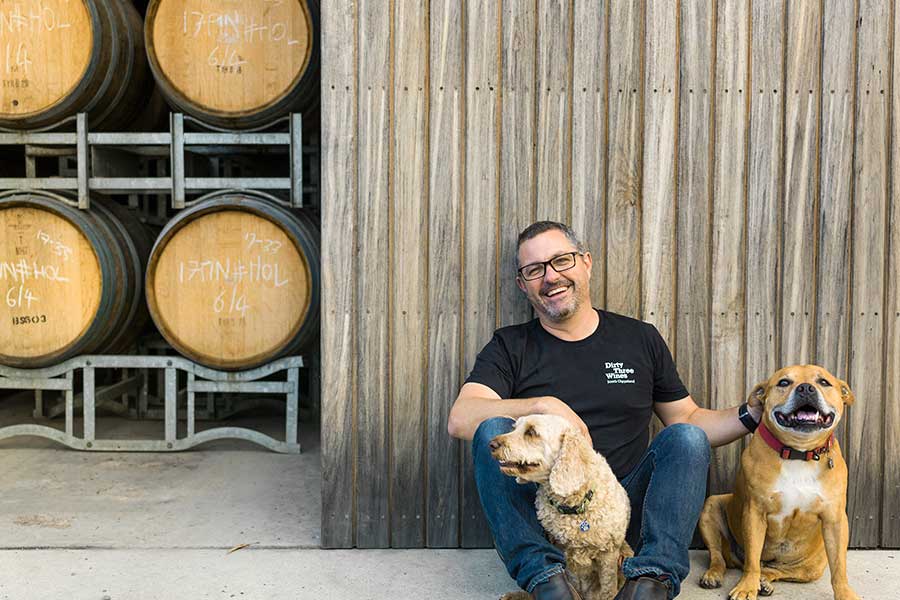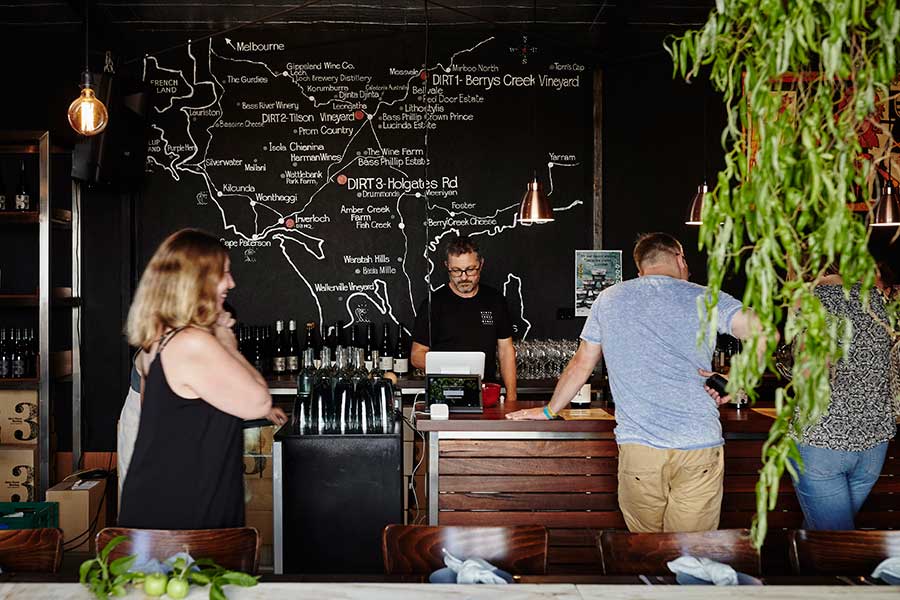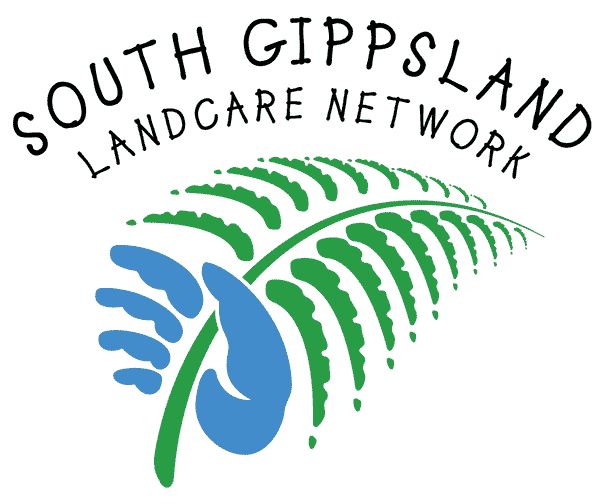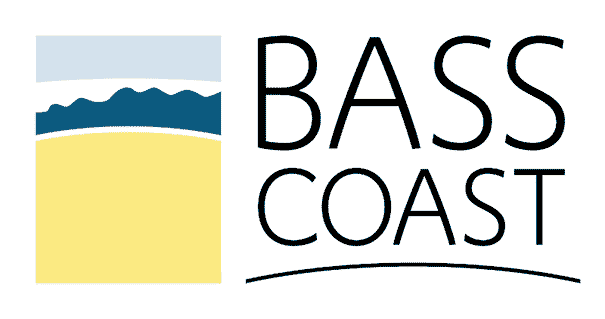Marcus Satchell and Lisa Sartori: Our Story
At Dirty Three Wines, Marcus and Lisa manage three separate vineyards. They seek to make premium pinot noir, which they sell through their cellar door in Inverloch. They have leased vineyards in the area since 2012. They also have plans to purchase their own property and set up a new vineyard in the district.
Our Vision
“We've got a genuine cool or cold climate which is really fantastic for growing grapes. The wines tend to be more elegant; they won't be quite as robust and rich as say wines from the Barossa. They are fine and more acid-driven, which are actually a really great foil for food. Moreover, I guess if you like, they are a very European style of wine.”
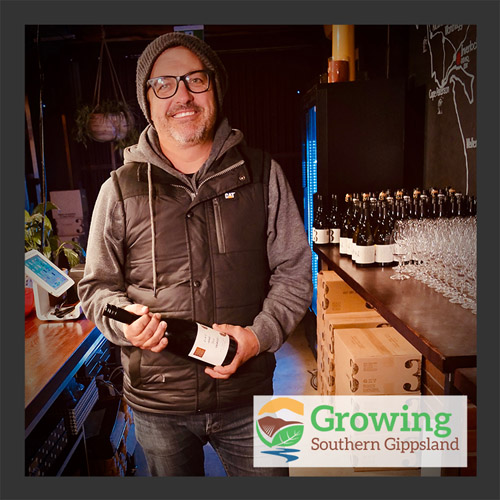
Enterprise: Horticulture - wine
Business Name: Dirty Three Wines
Locality: Inverloch
Catchment Management Region: West Gippsland
Landcare Network: Vineyards- South Gippsland; Cellar Door - Bass Coast
LGA: South Gippsland Shire Council
Landform: Gippsland Plains and Strzelecki Ranges
Soil Type: Vineyard 1 – grey sandy-loam podosols; Vineyard 2 and 3 – red ferrosols
Annual Rainfall Average: 848.5 mm or 33.4 inches (Source Bureau of Meteorology)
Our Enterprise
“Originally it started out as a business where we had one vineyard and we were making pinot noir from that one vineyard. We’re now leasing two vineyards and buying from several others. This organics evolution of what we’re doing continues to happen, really through the last 15 years of me being here in South Gippsland making wine.”
“We've now got our cellar door in Inverloch, which is where we are, and our winery is out in Leongatha South”
Our Challenges
Climate and weather have a more direct effect on wine production than other types of produce.
“Management of every vineyard is different. A lot of that is to do with, in fact, it’s nearly all to do with soil-water relations, so the type of soil and then conversely how much rainfall that particular vineyard gets.”
“One of the things about viticulture is that over the growing season - which we classify the ripening season between January and March, or from when the grapes start to change colour to when they actually get picked- that period has become earlier… So there is a pattern emerging. This seems largely to do with lack of rainfall - particularly summer rainfall, not so much spring rainfall. Spring rainfall is a bit all over the shop, there doesn't seem to be any sort of pattern there.”
Increased and variable humidity has emerged as a major challenge.
“Humidity plays a really important part on actually the complexity and interest of wines. But then conversely to that, it places a lot of pressure on disease. Therefore spraying for disease in areas like our areas are critical.”
The increased incidence of bushfires is creating problems for winemakers.
“I think up there with one of the greatest challenges we've got as an industry in Australia, particularly in Victoria, given the amount of bush we have and the likelihood of more frequent bushfires…In 2009 it was really bad, we had all the bushfires, it was kind of like the first time ever we'd ever seen this thing called sunburn on green grapes, not on ripe grapes but on green grapes. We were like, wow, okay, that's a new paradigm.”
Our Landscape Activities
“So being able to be more reactive to any particular season has become more important as opposed to just going holus-bolus, no, we’ll just do this technique every year, we know it works, and we know it gives us good fruit. The risks are there now if we just go through with the old techniques of the way we managed our vines. We could risk things like sunburn, which have become much more prevalent.”
“I like to ensure that how we manage our vineyards is sustainable. So sustainable practices, organics and biodynamics play a part, that it will be good to the land, that it won't be sort of raping and pillaging it, that we’ll be leaving the land in some ways, a better place than what we started with, if that makes sense.”
Our Practices and Successes
“Primarily it's staying true to why we did everything in the first place, so that's a quality - really just from a straight quality point of view. Making sure that everything we do, no matter what it is, is done with love and passion and authenticity, and I guess, above and beyond all of that, is that it meets a really high-quality standard.”
Sharing
“I guess I like to learn - my learning has probably mostly been done through networking. I like talking to people, so I've made a lot of friends, in the industry. When we catch up, we'll talk about wine; what are you up to, what are you doing?”
“I am a delegate at a conference that we have every year called the Victorian Pinot Noir Workshop. Pretty much all the good pinot makers in Victoria and beyond get together and share their knowledge. It has been invaluable”
Website
www.dirtythreewines.com.au
www.facebook.com/dirtythreewines
Images
